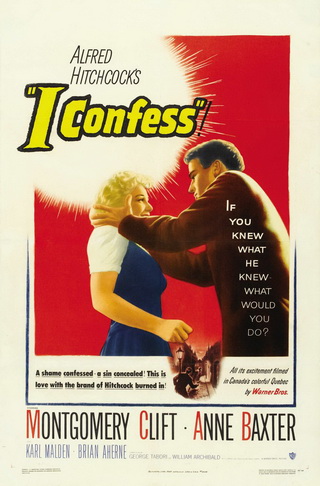The Wrong Place At The
Wrong Time- Sir Alfred Hitchcock’s “The Man Who Knew Too Much”(1956)-A Film
Review
DVD Review
[I worked with Sandy
Salmon for many years over at American
Film Gazette but when times became hard as they did, and are doing on the
print publishing business and not just newspapers which is what you hear about
most in the media we had to let him go. He landed on his feet here. When Allan
Jackson brought me over at a time when I saw the writing on the wall at the Gazette Sandy and I were reunited which
I think we were both happy about. Here is where things are sometimes funny thought.
Soon after Allan brought me over there was a huge internal fight (2017) the
result of which Allan had been ousted and I was selected by the newly
established Editorial Board which was to oversee all the work to be the new
site manager. Sandy was in line to take the legendary Sam Lowell’s place as he
retired to emeritus status until the Board and I decided that departments and
department heads was the cause of too much in-fighting in a profession already
rife with such goings-on. This profession is not for the faint-hearted as Sandy
would be the first to tell you. So I got a job I wasn’t looking for and he
didn’t the he wanted. Blame the exiled Allan Jackson for both those conditions.
Greg Green]
By Sandy Salmon
The Man Who Knew Too
Much, starring James Stewart, Doris Day, directed again (first time 1934) by
Sir Alfred Hitchcock, 1956
People, historians,
especially counter-historians, often speculate if one little fact was changed
then history would have taken a decisive turn the other way. You know stuff
like if Hitler had been killed at the beer garden in Munich in 1923 or if Lenin
could not have gotten back to Russia on that passage through Germany train in
the spring of 1917. That idea runs to the personal side of life as well,
sometimes with strange results like being in the wrong place at the wrong time
like the protagonists in the late Sir Alfred Hitchcock’s off-beat remake of his
1934 classic The Man Who Knew Too Much. So
just like with great historical figures and events we can play the same game
here what if Ben, played by Jimmy Stewart, Jo played by Doris Day and their
young son had not been heading from Casablanca to Marrakesh on some dusty woe-begotten
bus and run into a French intelligence agent whose dying words talked of an
assassination plot against a big shot foreign dignity in bloody England.
But, of course, they
were and the chase was on from there ruining a perfectly respectable little
family vacation and putting Ben and Jo on the edge-to speak nothing of their
son who will eventually be kidnapped just because Ma and Pa knew too freaking
much. Once the conspirators know they know that young son’s life isn’t worth
much, maybe. He is kidnapped to insure Ben and Jo’s silence. But they trace the
party to London where the action gets hot and heavy and the conspiracy to kill
the foreign big wigs in full gear. Except through keen analysis and some luck
Ben and Jo figure out that the plot is going to be hatched, that dignitary is
going to be killed while attending a symphony concert at Royal Albert Hall
(where else). The long and short of it is that Ben and Jo discover where the
kidnappers have taken their son, they struggle to get to him and eventually
find out about the Royal Albert caper. They are able to foil the plot by a timely
scream from Jo who sights the paid assassin as he attempts his dastardly work.
After much ado their son is recovered and they can go on about their average
American family life.
But let’s say that big
wig was killed maybe there would have been another Sarajevo, 1914. There’s a
little history in the conditional for you. See this one it is better that the
1934 version which as Hitchcock himself is quoted as saying was the work of an
inspired amateur and the 1956 was done by a master artist, a pro. And that is
right.



